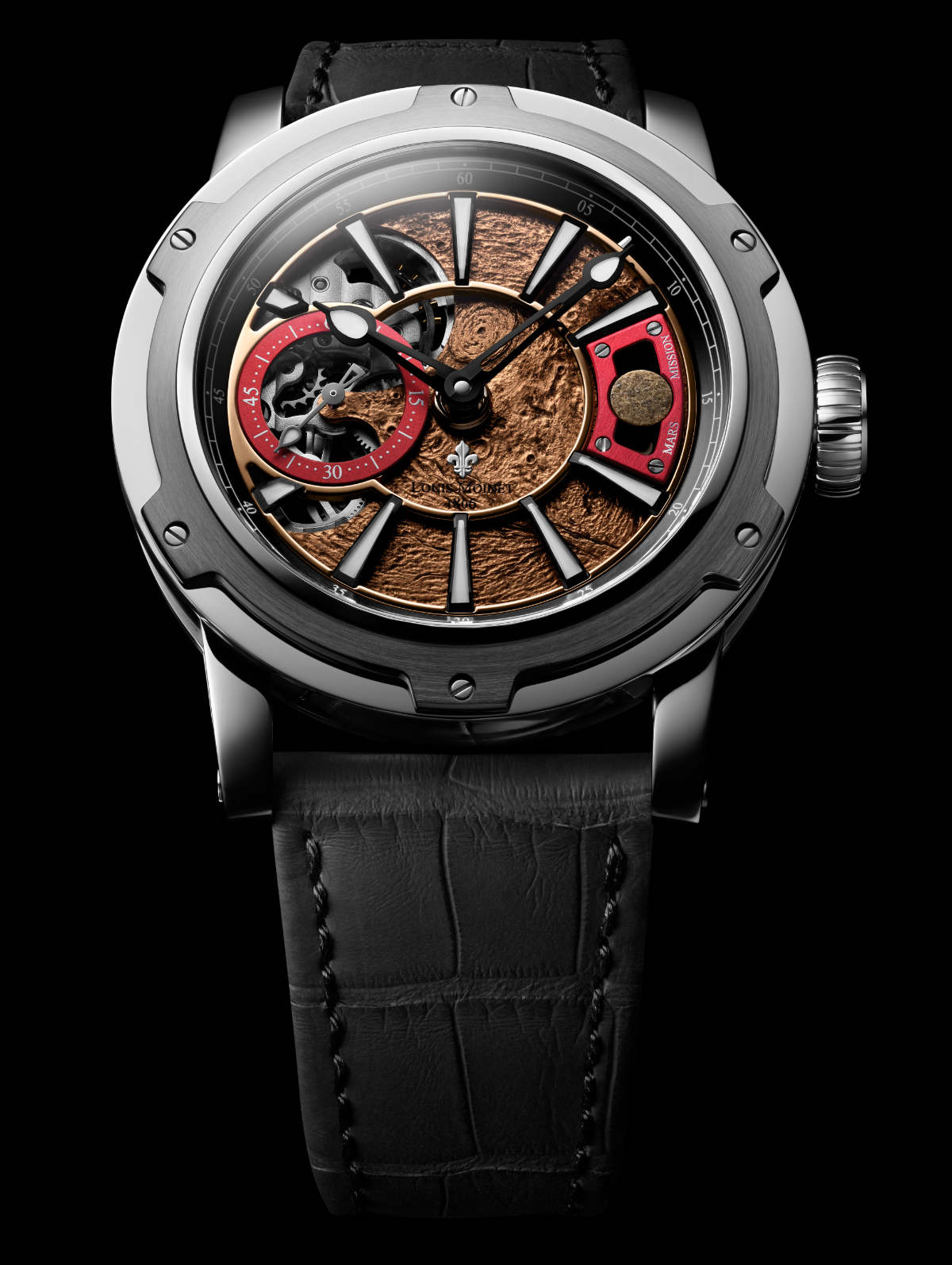Louis Moinet Brand
Louis Moinet Launches Its New Watch: Mars Mission
Luxferity, 12.07.2022

“There are 77 government space agencies to date, and knowledge of Mars has become a priority for humanity”
Jean-Marie Schaller
Why is the cosmic world so important to Louis Moinet?
Louis Moinet invented the chronograph in 1816, to meet the needs of his astronomical observations. This hitherto unknown instrument was indeed associated with the unit of measurement of his astronomical transit instrument: the tierce, which corresponds to 1/60th of a second.
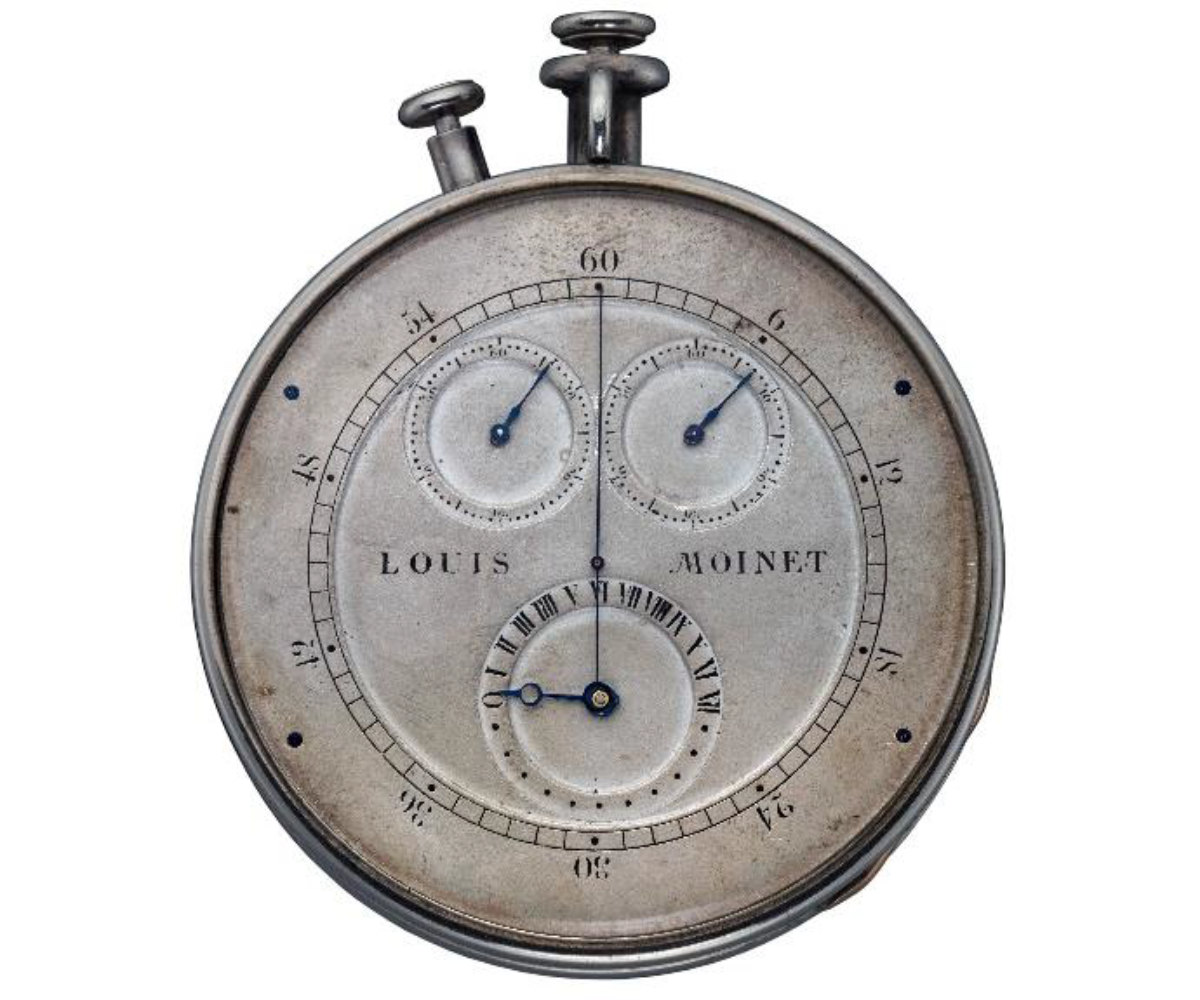
The Louis Moinet’s Chronograph, 1816
Why “Mars Mission”?
Louis Moinet was a trailblazer and wanted to develop a better knowledge of the universe through his astronomical observations. The same can be said of the programmes aimed at Mars, which are probably the next step in the conquest of space.

Mars Mission, a character-filled creation
This modern timepiece aims to combine the visionary talent of the inventor of the chronograph and high frequency with contemporary architectural work. The essential elements are outlined below.
The dial – a witness to the conquest of space
The dial pays tribute to the first detailed photos of Mars taken in 1965 by the first Mars flyby probe: Mariner 4. The engraving results from hand-crafted hammering creating pleasing contrasts on the surface of the planet. The finish features two light and dark tones resulting from a light black patina achieved after the dial was copper-plated.
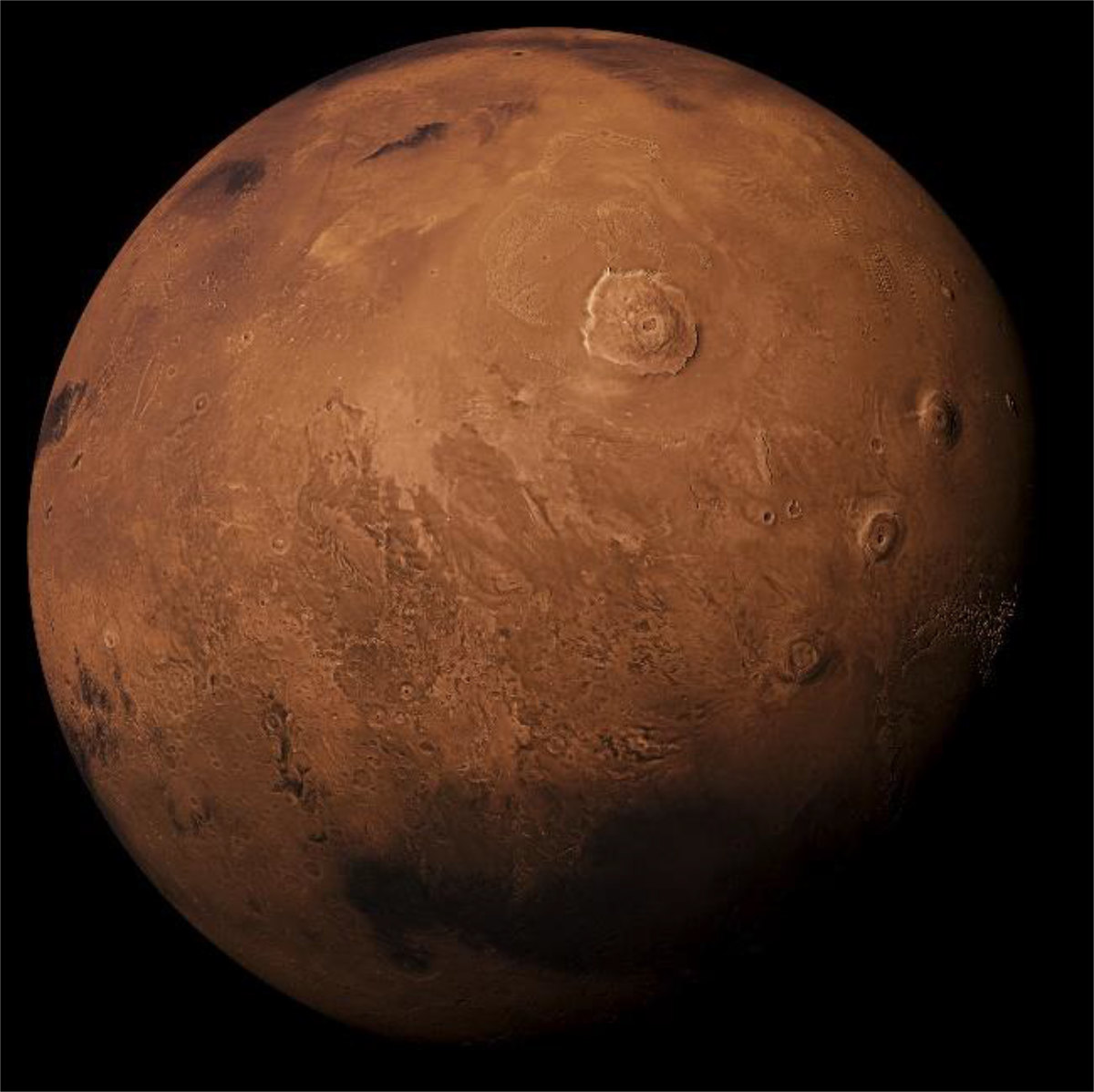
It has an opening between 8 o'clock and 12 o'clock, revealing each beat of its exclusive calibre including the escapement operating at a rate of 28,800 vibrations/hour, as well as the off-centre seconds hand. Everything is arranged to ensure that the eye loses nothing of intricate workings of this MARS MISSION watch.
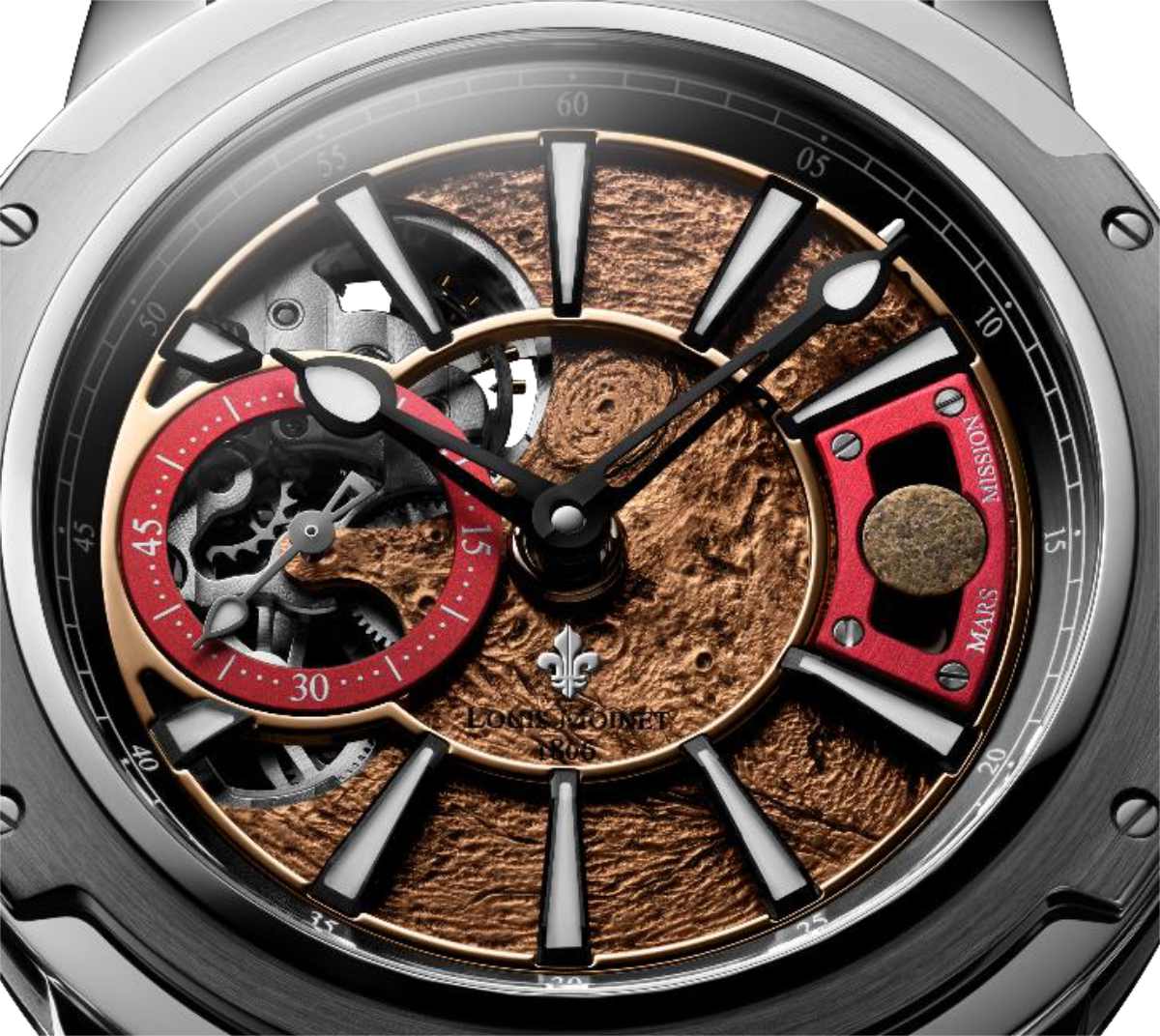
Mars – an authentic Martian meteorite fragment
Louis Moinet offers exclusive real fragments of Mars. This is an extremely rare and precious material, as only 277 Martian meteorites are known to exist worldwide.
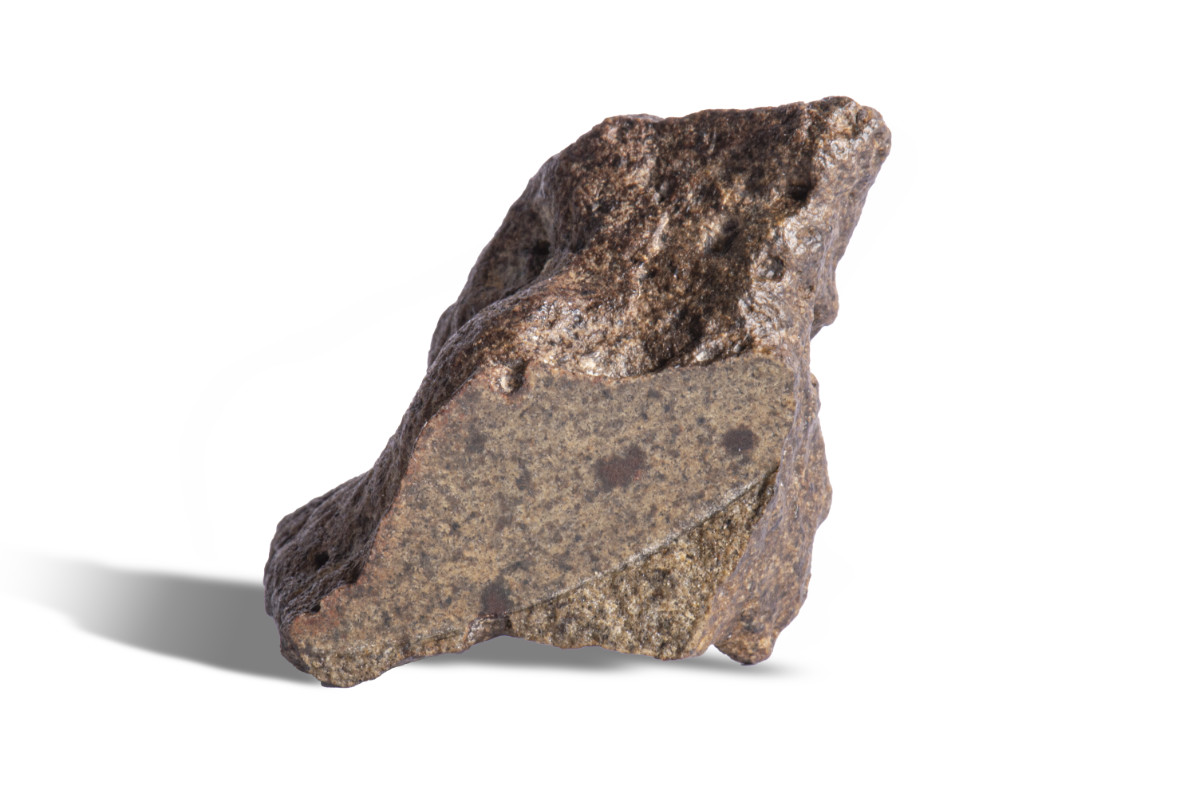
Martian meteorite
After being torn from the Martian crust probably millions of years ago, this meteorite drifted through interplanetary space, travelling millions of kilometres, before finally being captured by the Earth's gravity and landing in the Jiddat al Harasis Desert in Oman.
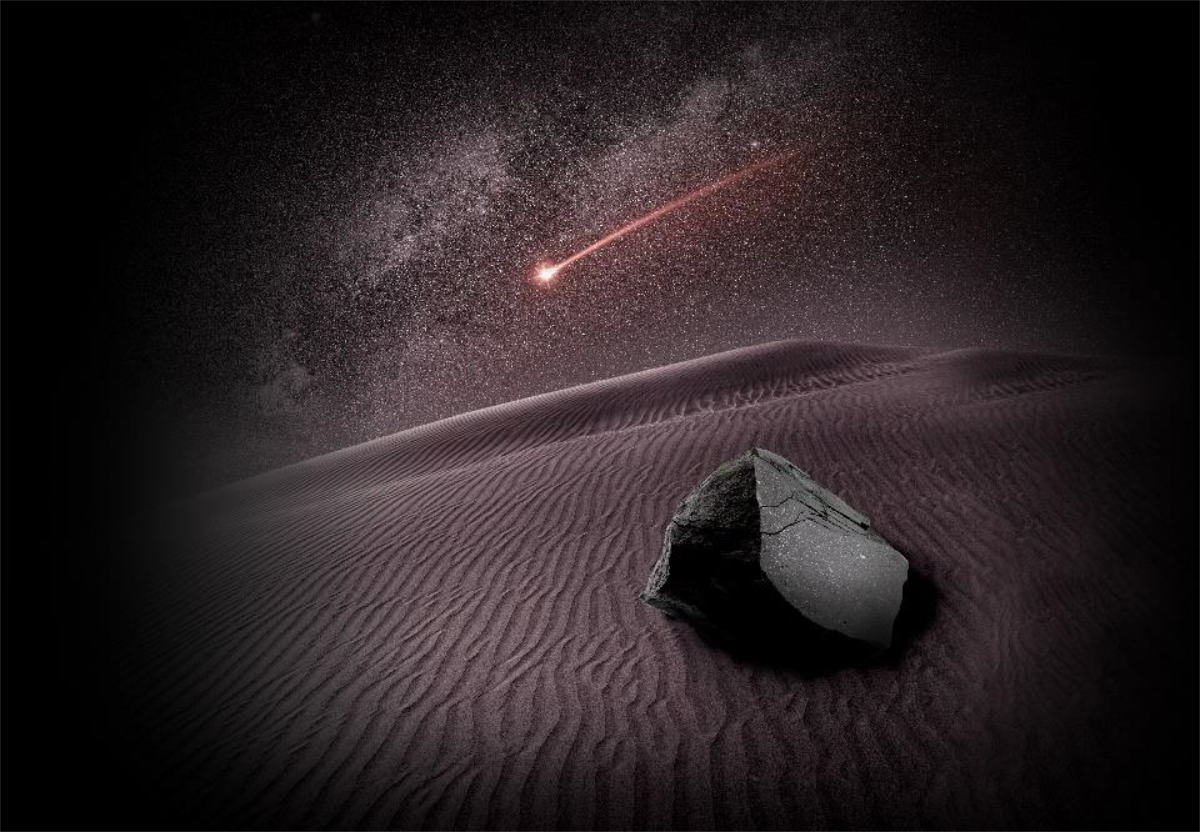
It has now been transformed into an objet d’art, sculpted by the expert hands of Daniel Haas and suspended above the void, protected by an anodised aluminium capsule with a shiny black base to make the red planet stand out.
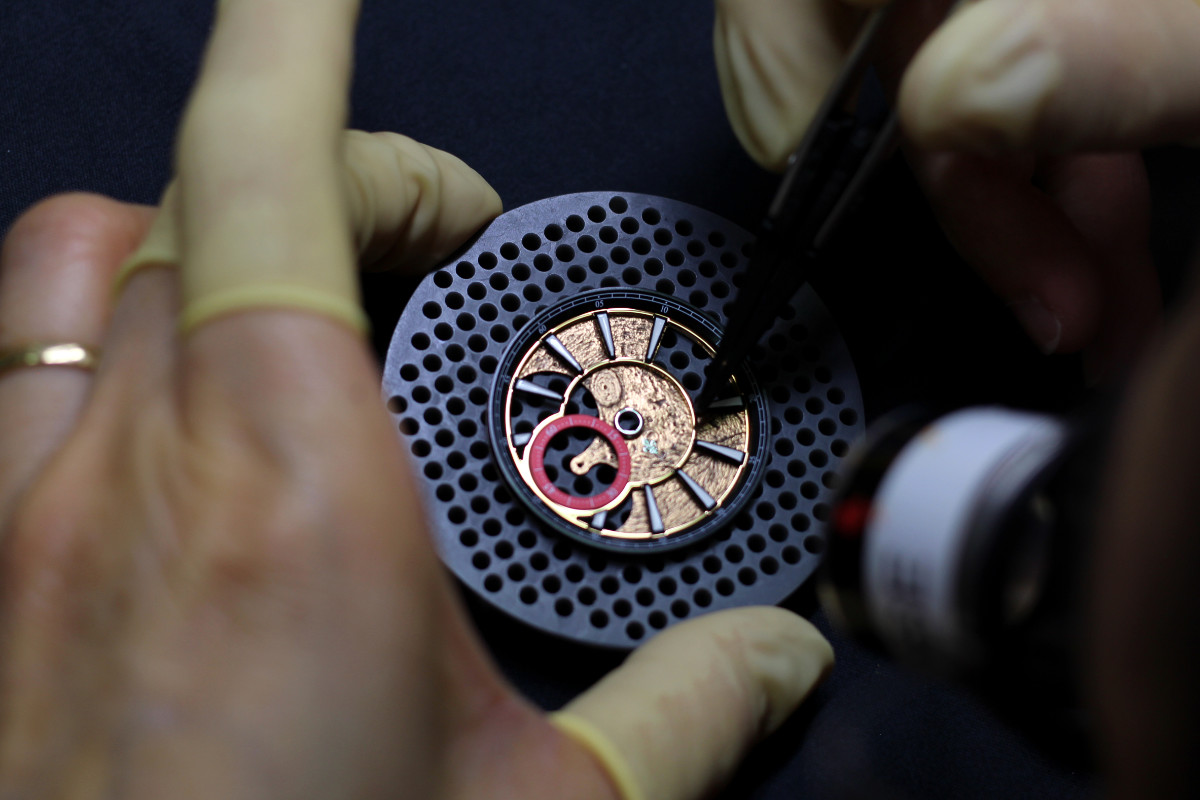
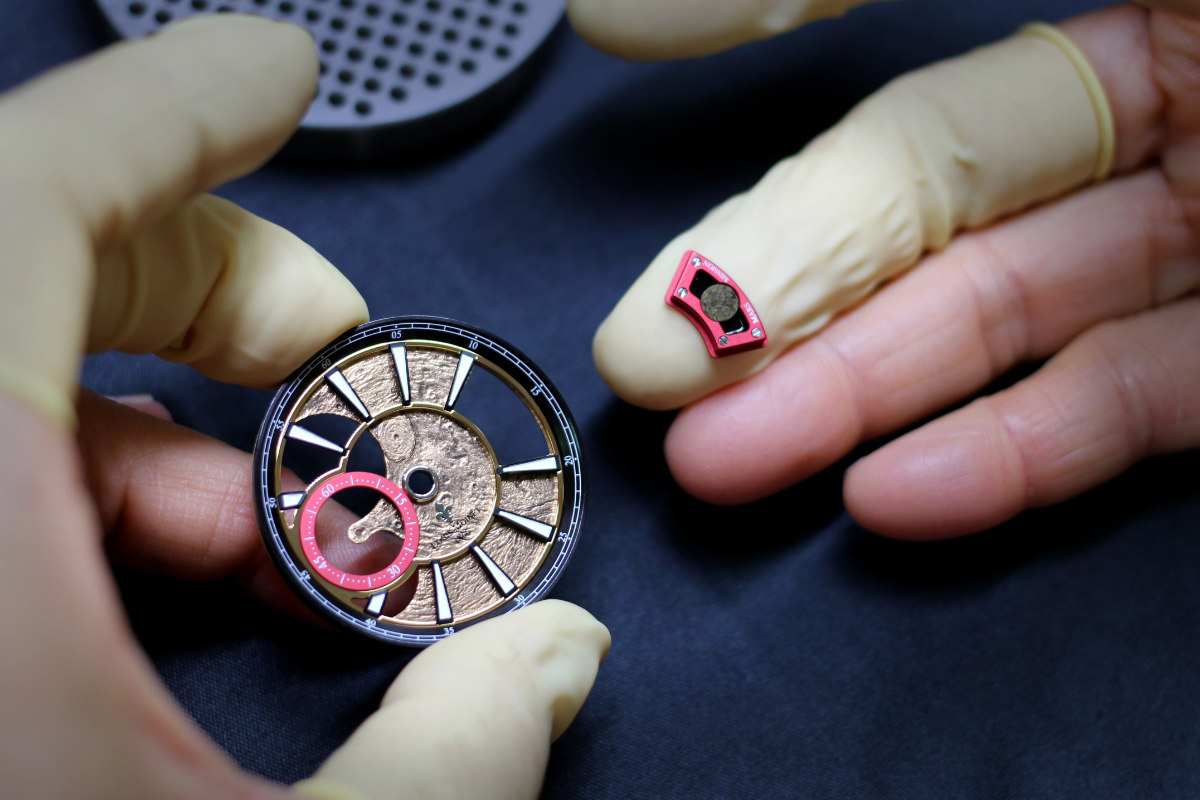
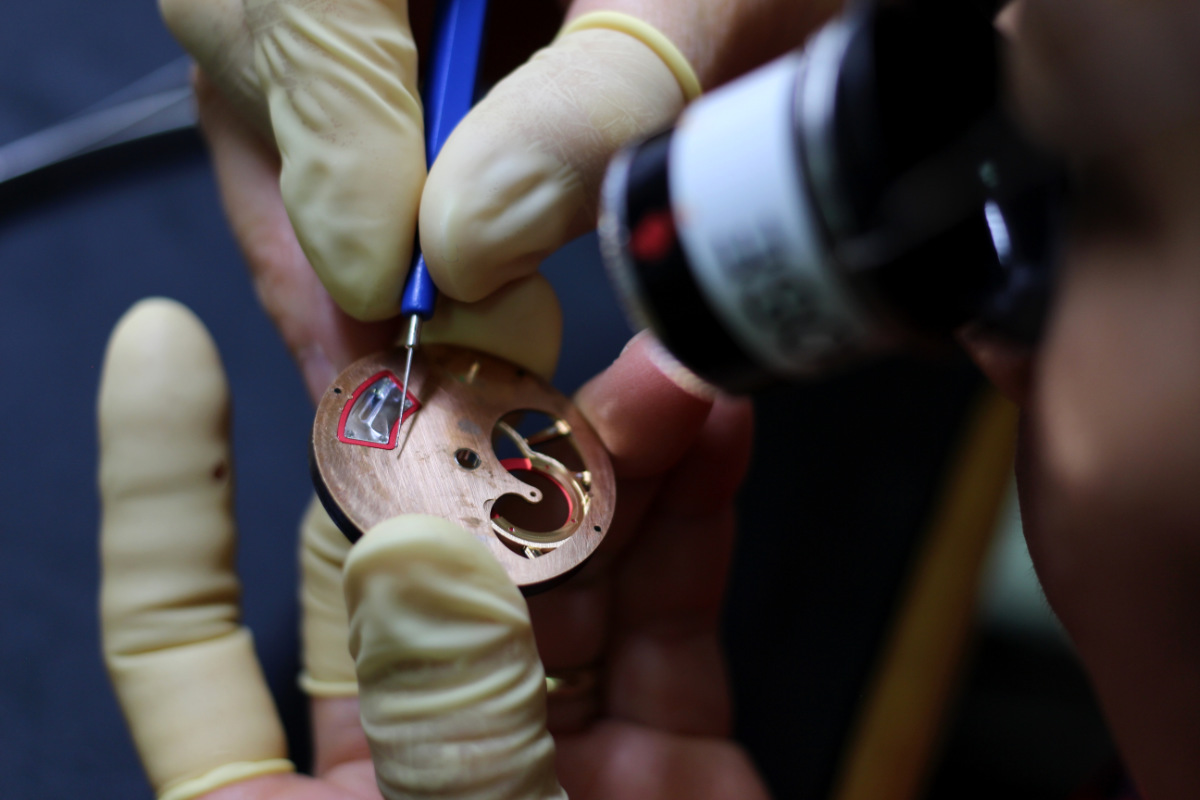
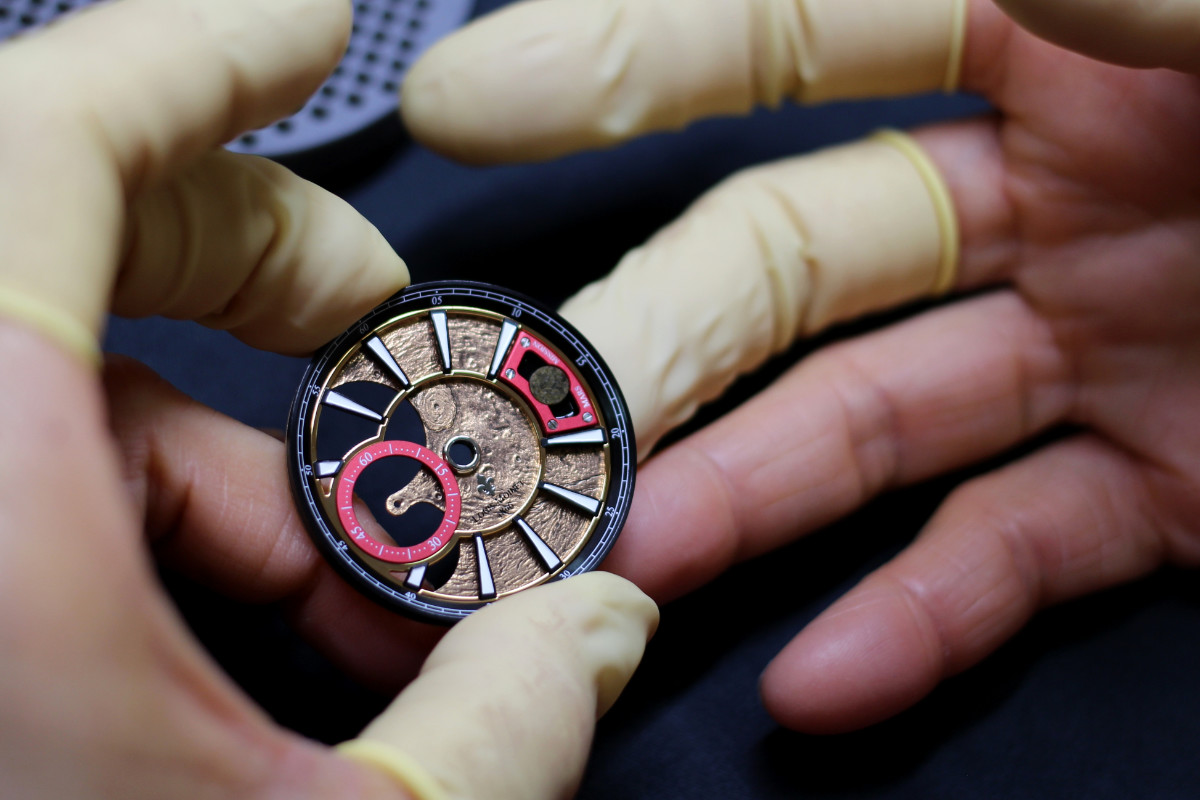
Martian meteorite becomes an artwork
The hour-markers – light and radiance
Representing an essential stylistic element in this creation, the hour-markers involve an extremely sophisticated manufacture process. Each features three variously shaped facets designed to make the light dance over them. The flank features a diamond and satin-finished part to endow the dial with a deep radiance. The colour contrast is accentuated by its black PVD base and the lacquer in its centre.
The real accomplishment was to keep them suspended above the void, with the clear intention of creating a strong perspective. This virtuoso craftsmanship enables them to be linked to a central ring and to the inner bezel ring.
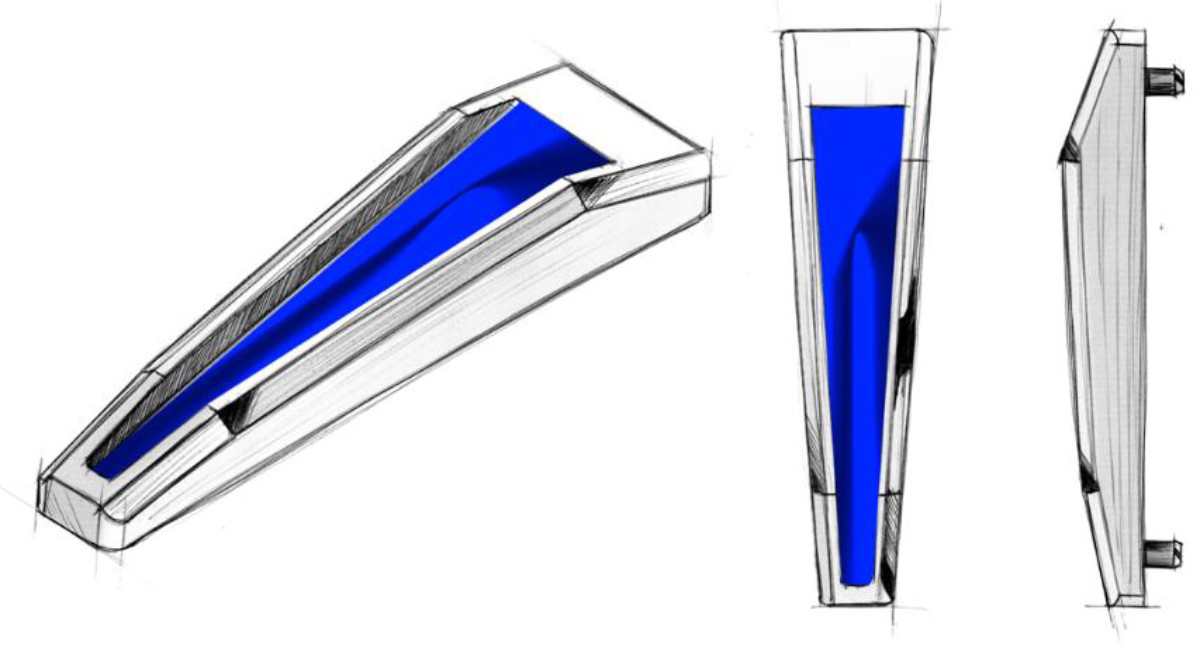
The self-winding calibre – function & style
The finishing of the movement is based on the noble traditions of fine watchmaking: Côtes de Genève, diamond-polished chamfers, circular satin-finished wheels, circular graining. The sapphire caseback reveals the movements of the rotor mounted on ball bearings. The Clous de Paris motif dear to Louis Moinet in the 19th century has been reinterpreted in a concentric version, giving an impression of movement.
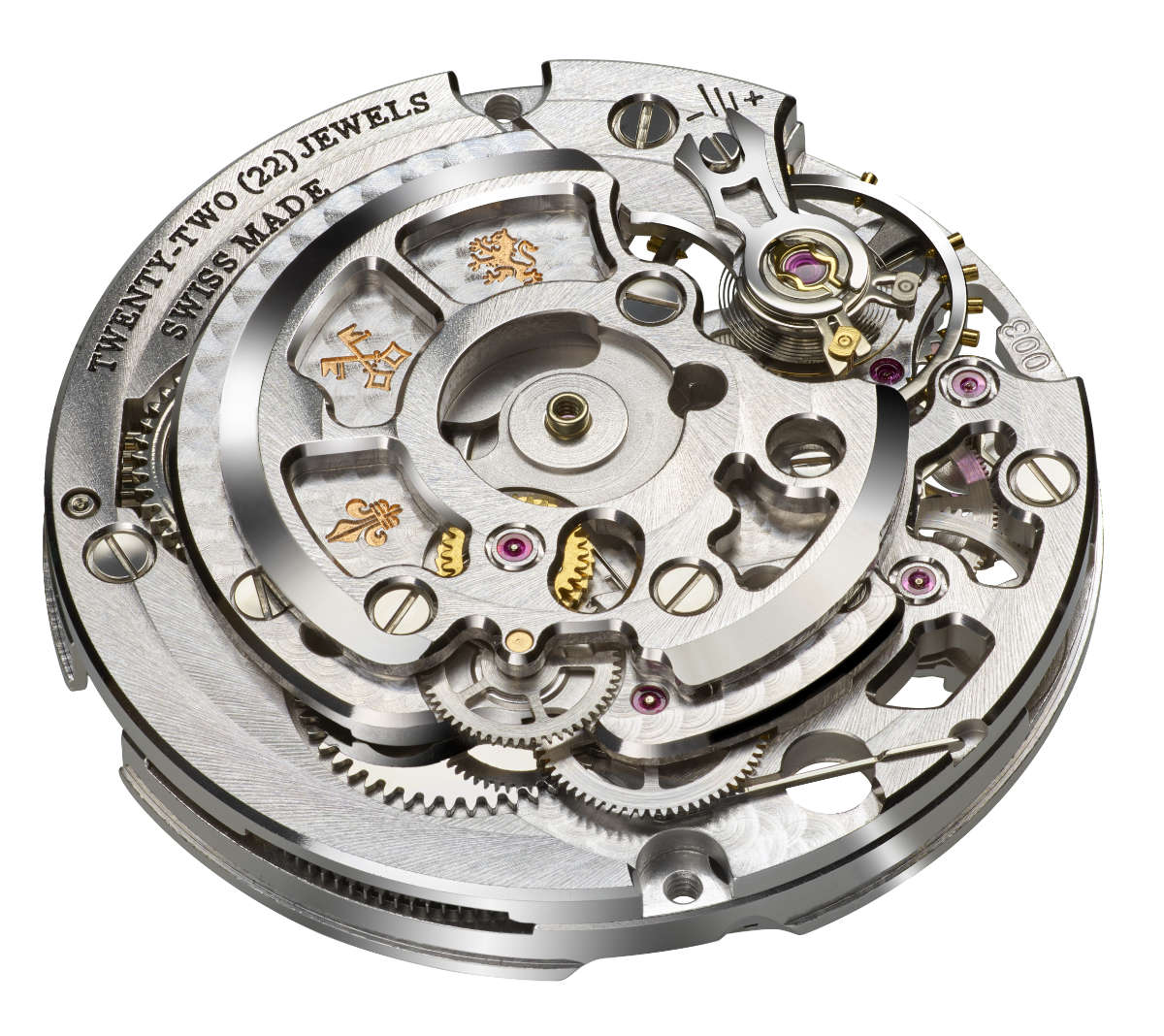
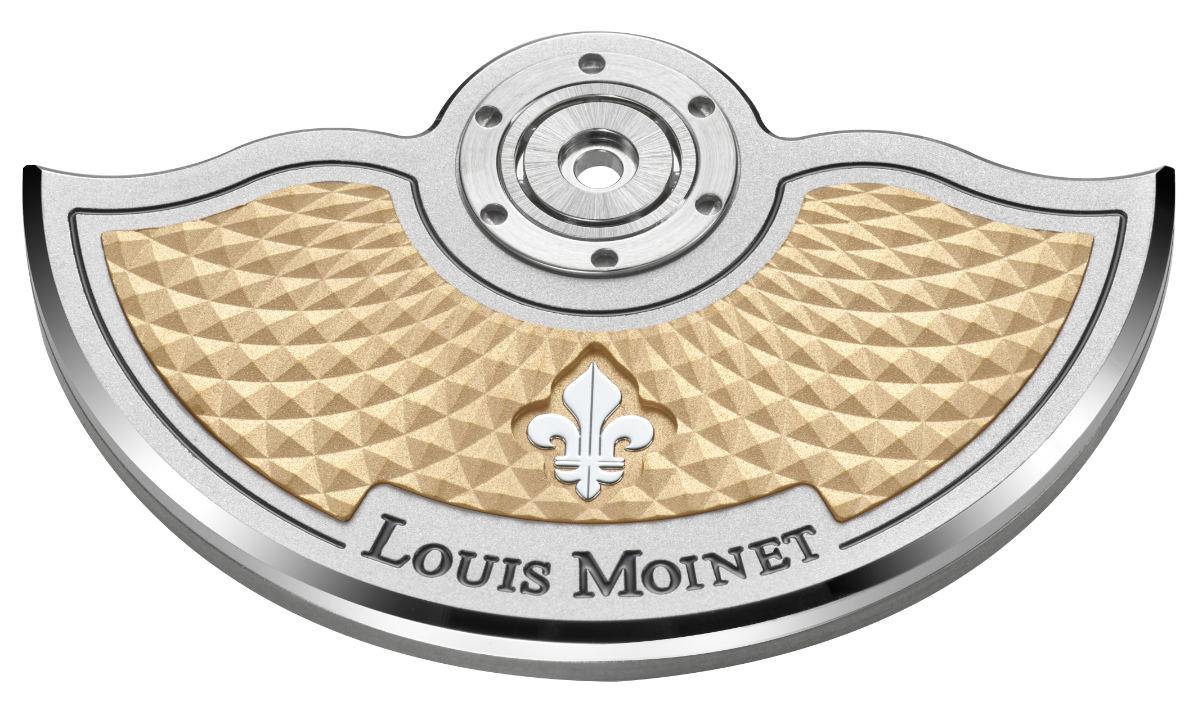
The Neo case – a watch industry trailblazer
The Mars Mission case has been christened Neo, as its novel technical solutions have created a silhouette that is unprecedented in watchmaking. Everything is built around two vertical bridges that cross the piece to accommodate the strap at each end of their openworked lugs. These bridges enclose the movement container, which is dominated by the six-screw bezel, one of Louis Moinet's trademarks.
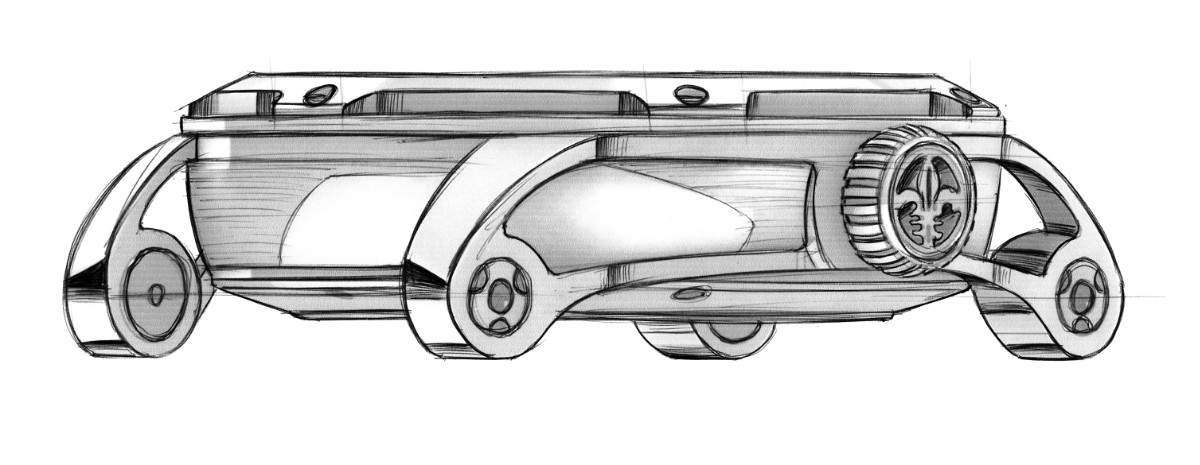
Its alligator leather strap is secured by a folding clasp adorned with the curved Fleur de Lys, the symbol of Louis Moinet.
| WATCH | |
| Model | MARS MISSION |
| Limited edition | 100 watches |
| CASE | |
| Material | 316L stainless steel |
| Glasses | Sapphire crystal | Glareproofed on both sides |
| Diameter | 45.4 mm |
| DIAL | |
| Theme | Depiction of the surface of Mars |
| Engraving | Hammering | Copper plating | Patina |
| Capsule at 3 o'clock | Mars meteorite fragment | Red anodised aluminium |
| Index | Suspended above the dial | Black PVD treatment, diamond-polished and satin-brushed flanks |
| MOVEMENT | |
| Manufacture | Louis Moinet |
| Calibre | LM45 |
| Functions | Hours | Minutes | Seconds |
| Type | Self-winding mechanism | Balance with screws |
| Oscillating mass | Bi-material | 6 ball bearings | Adorned with concentric "Clous de Paris" hobnail pattern and "Fleur de Lys |
| Finishes | Mainplate: circular “Côtes de Genève” hobnail pattern, circular satin-finished and circular-grained Self-winding bridge: circular graining, diamond-polished chamfers, engraved and gilded Louis Moinet symbols Gear trains: circular satin-finished |
| Oscillations | 28,800 vibrations/hour |
| Frequency | 4Hz |
| Jewels | 22 |
| Power reserve | 48 hours |
| Water resistance | 50 metres |
| STRAP | |
| Material | Louisiana alligator leather | Alligator lining, hand-sewn |
| Clasp | Triple-blade folding clasp | Steel with black PVD finish | Fine adjustment | Curved "Fleur de Lys" |
ABOUT LOUIS MOINET
Jean-Marie Schaller created Les Ateliers Louis Moinet in St-Blaise (NE) in 2004. The fully independent firm was established to honour the memory of Louis Moinet (1768-1853): master watchmaker, inventor of the chronograph and high frequency (216,000 vibrations per hour) (certified by two Guinness World Records™). Louis Moinet was a watchmaker, artist and astronomer. He is the author of the Traité d’Horlogerie, a watchmaking treatise published in 1848 that remained a definitive work of reference for a century.
Today, Ateliers Louis Moinet is perpetuating this legacy. The firm’s mechanical timepieces are produced as one-of-a-kind models or limited editions only and comprise two categories: “Cosmic Art” and “Mechanical Wonders”. Louis Moinet creations often make use of unusual and rare components, such as extraterrestrial meteorites or prehistorical materials. The brand’s core values are creativity, exclusivity, art and design. This uniquely creative mechanical approach combined with bespoke fine watchmaking has enabled Louis Moinet to win some of the most coveted honours around the world, including a UNESCO Award of Merit, six Red Dot Design Awards (including one Best of the Best Award), a Horological Creativity Contribution Award, gold and bronze medals in the International Chronometry Competition, ten Good Design Awards, five Middle East Watch of the Year Awards, two Robb Report “Best of the Best” Awards, three German Design Awards, a Moscow Grand Prix Award, and a “Chronograph of the year” distinction from Begin Magazine, Japan.



